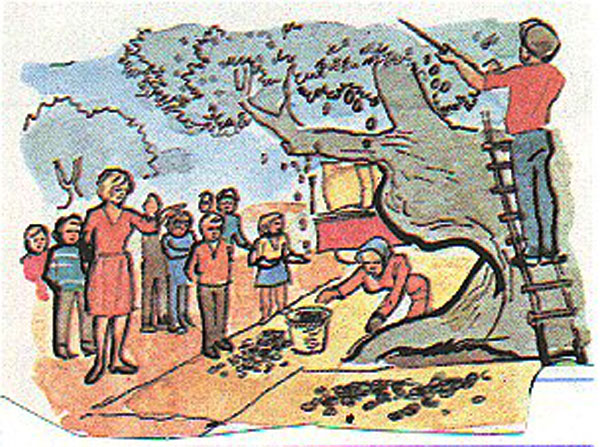The term "organic products" refers to products free from toxic or chemical admixtures in all stages of the production process. However, organic cultivation is not just a way of producing chemical free products, but a whole different life philosophy, a source of inspiration for everyday life, and a different perception of the environment and of our relationship with nature. This life philosophy gains more and more supporters all over the world, and the demand for organic products seems to have increased dramatically during the last five years, especially in the developed countries.
Organic olive tree cultivation is the most harmoninized to nature farming model, which respects bio-diversity, contributes to the preservation and growth of the natural flora and fauna of an area, and at the same time it promotes the idea of the so called “sustainability”. For olive trees this means, among other things, appropriate density of the trees when planted, soil improvement with the use of natural fertilizers (manure, compost), regular pruning, use of natural and not chemicals means for fighting off diseases, and precautious transportation, storage and processing of the fruits.
Therefore organic cultivation signifies not only the lack of synthetic fertilizers but also a holistic philosophical approach in all stages of production that briefly aims to:
- Application of cultivation methods which do not disturb the natural soil fertility in favor of increased production.
- Rehabilitation of natural soil fertility in territories already disturbed.
- vProduction of olive oil and other olive products of higher quality, free from chemical or other toxic residues.
- Development of treatment, processing and packaging methods which do not alter the qualitative properties of the products and at the same time they are invironmental friendly.




